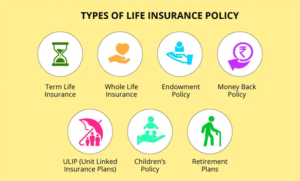A term insurance policy is considered the simplest among all insurances in the market. See, the proposition is straightforward. You need to pay a premium against which you get a life cover i.e., the sum assured. If something uncertain happens to you, then you as a policyholder during the term of the insurance, your nominee would get the assured amount as stated in the insurance policy. In the case you outlive the insurance term, then nothing is payable.
But, of late, insurers have come up with term plans that offer a return on premium. The mechanism of how such plan functions is the same as any conventional term insurance plan, with just a little difference. In the case of such an insurance policy, if you survive through the plan term, the insurer will return the overall premium that you paid on this plan. However, unlike the purest form of term insurance, this term insurance requires you to pay a higher premium. So, to choose the best term insurance policy as per your preference and need, ensure to compare the insurers, their plans offer, and the add-on provided. Go for the one that best matches your need.
What are the benefits of opting for a term plan policy?
Considerable cover at an affordable premium
This is the most crucial benefit of having a term plan. You get a massive cover at a reasonable premium. With this term policy, you can avail a life coverage of as high as Rs 1 crore by making payment of a small premium amount if you begin with this plan early in life.
The extensive cover allows your family members i.e., your dependents to maintain the same standard of living even after your demise. In simpler terms, your dependents though are emotionally impacted are financially secured with such plans.
Assist in repaying loans on time
Unpaid loans are often a major cause of massive financial burdens and stress. But things are different if you hold a term insurance plan. The assured amount received from the term plan can assist your family members or dependents to repay the entire loan outstanding with ease and eliminate the burden of loan EMIs significantly.
Simple to understand
There are zero complexities in the case of a term insurance plan. As it does not have any investment constituent, there’s zero nitty gritty. The amount paid as a premium towards your term insurance goes towards securing the life of your dependents and family members in the case of your absence.
Lumpsum and staggered payment mode
Today, most term insurance plans endow you with the choice to select the way you require your nominee to get the payout. It either may be in a lumpsum form or in a staggered way. A lumpsum payout infers paying the whole amount assured in a single go. In contrast, in a staggered manner, a specific percentage of an assured sum is paid in lumpsum form, while the remaining is paid on a monthly basis. You can select the payout mode based on your requirements.
Increase the assured sum at distinct milestones
Over the past few years, insurance companies have fine-tuned term insurance plans to the growing needs of customers. Today, there are many term insurance plans that permit you to enhance the assured amount at distinct life stages. Remember that the coverage amount is not the same at distinct stages of life.
You require enhancing the cover amount when you get married and have children. This is because of more financial dependents in your family and hence the coverage needs even rise proportionately. As premiums rise with age, purchasing a new insurance policy can become slightly tough. However, if you hold term insurance that permits you to enhance the assured amount at essential milestones, then there is nothing like it.
Benefits on tax
Though tax benefits must be the ultimate and last thing in your mind when purchasing a term insurance policy, the fact is buying a term policy assist you to reduce your tax-linked liabilities. Premium paid towards term insurance policy qualifies for tax deductions. In simpler terms, the premium paid qualifies for a tax deduction as per Section 80 C.
What are the aspects to consider while purchasing a term insurance plan?
Now that you are aware of the term plan benefits, let’s consider looking at a few important aspects you require to factor in when purchasing this important insurance plan. A few important parameters that you must consider are –
Amount assured
This is one of the crucial aspects you must consider while purchasing a term insurance plan. Go for the insurance plan with a sufficient sum assured. Select a sum assured of at least 10-15 times your annual income. So, in the case your annual income equals Rs 5 lakh, then the amount assured must be anywhere between Rs 50 lakh and Rs 75 lakh.
Claim settlement ratio of the insurance company
Claim settlement ratio is a major key parameter you must ensure to look out for when purchasing a term insurance plan. This ratio is expressed in percentage form revealing the claims met by the insurance company against the claims received. Many insurance companies tend to display this ratio prominently on online financial platforms and their websites. You must consider choosing an insurance company having a high settlement ratio.
Available riders
Riders basically are the add-on features that assist you to increase your coverage. They provide a payout over and above the base insurance policy. Thus, it is advisable to select a relevant rider to enhance your coverage and get the most out of your term plan.
A few of the common riders or add-ons are additional cover for accidental death, critical illness, etc. Adding a rider to your term insurance can enhance your premium slightly but is beneficial over the long term.
In case, you are still confused as to which term plan policy you must choose, then you may consider visiting online financial platforms where you can use an online term insurance calculator to decide an appropriate term plan.





Be First to Comment